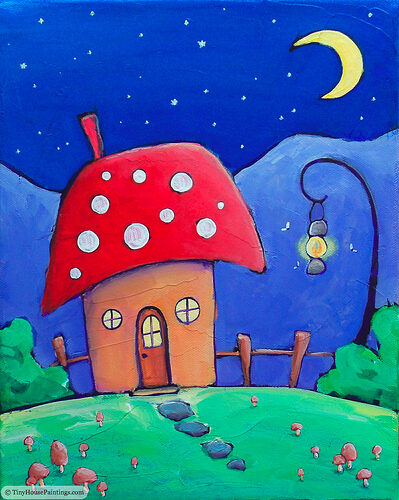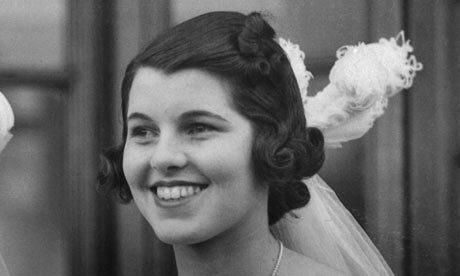Spectrum Disordered www.facebook.com/asdisordered We’ve all heard or experienced horror stories about accessing services and supports. Often the idea of receiving services for people with intellectual and developmental disabilities (I/DD), including autism, conjures up images of institutions—visions of Willowbrook. Or, ideas of what is “optimal” for us look like segregated lives, or “intentional” communities where the true intent is to lump us together under the guise of “keeping us safe.” Regularly, the idea of seeking supports to live in one’s daily life carries an expectation that the cost will be any and all independence and autonomy in having positive control over that life. These fears are rooted in fact and truth, both of how things were and in some cases, continue to be. But that does not mean they are a universal truth! There are a lot of really great disability support providers out there! Unfortunately, there are also plenty of…
Tag: institutions
Painting © Tracy Booth | Creative Commons/Flickr [image: Painting of a tiny home with a red roof with white spots, and a lantern, under a crescent moon] Many of our U.S.-based community members, including parents and caregivers, want guidance and clarity about how the impending Home and Community Based Services (HCBS) Settings rule will affect both adult housing choices and adult day programs. So, we spoke with policy expert Julia Bascom, Executive Director of the Autistic Self Advocacy Network, who explained in plain conversational language how exactly the new HCBS Settings rules will affect housing options, how some common misunderstandings about the rule happen, and why the rule is essentially about trying to ensure adults with disabilities have the same basic rights as non-disabled adults do. Thinking Person’s Guide to Autism: Why was the rule enacted in the first place? Julia Bascom: The HCBS Settings Rule sets ground floor, baseline…
The worst part of institutions is not physical violence, obvious forms of abuse or neglect. It’s not even the experiences you don’t get to have. It’s the damage that is done right down to your soul, by living under the power of other human beings. Glamour makes no difference. Prettiness makes no difference. Size makes no difference.
Sara Luterman www.NosMag.org Sara Luterman [image: Headshot of a smiling white person with short dark hair & glasses.] Recently, Amy Lutz, a parent advocate, wrote an opinion piece for Spectrum News titled, Adults with disabilities deserve the right to choose where to live. I wholehearted agree with that sentiment. Unfortunately, the article that follows argues nothing of the kind. It is, in fact, an argument to return people with developmental and intellectual disabilities to institutions. These new institutions have organic-biodynamic farms, swimming pools, and fluffy pillows. They are, however, still secluded and subject to all of the abuses of Willowbrook and Pennhurst. Amy Lutz and others who mask new institutions as a “choice” do not draw a healthy or appropriate distinction between themselves and their own children. When they say, “adults with disabilities deserve the right to choose,” they mean is that their opinions are their children’s opinions. They do not…
Ivanova Smith @lauralovesian1 My name is Ivanova Smith and I am a proud autistic activist advocate. I advocate at the Washington State legislature! I testify at bill hearings about policies that affect me as a developmentally disabled person. One of the bills I put the most attention to is to shut down state institutions. [Image: Ivanova Smith testifying against a Bill that allow respite to be provided at an institution! They have brown hair. They are wearing black suit with grey shirt and tie. They are speaking into a microphone.] There are four state-run institutions in Washington, and they hold 800 people with Intellectual/developmental disabilities (I/DD). These used to be called training schools. I have heard the arguments for support of these institutions many times while I have waited to give testimony. I have had to listen to all these arguments on why it OK to imprison people like me.…
Today would have been Rosemary Kennedy’s 98th birthday. In her honor, we are are featuring autistic writer Kate Ryan‘s review of the book Rosemary: The Hidden Kennedy Daughter, by Kate Clifford Larson. —- Rosemary Kennedy [image: Black-and-white photo of a smiling white young woman with dark 1940s-style coiffed hair.] Growing up in the Boston area, I knew about the Kennedys. It seemed to me, as a child and an adult, that everyone knows about the Kennedys, and their big, boisterous Catholic family that would leave such an impact on Massachusetts and the world. About their political aspirations and horrific assassinations, about their charitable foundations, about their triumphs and tragedies. About Jack and Teddy and Eunice and Rose. Until recently, however, I have known very little about what is perhaps one of the saddest tragedies to come out of the Kennedy family: that of Rosemary Kennedy. A new biography by Kate…
Housing for autistic adults is a fraught and confusing topic. We talked with Sam Crane, who explains why group homes can be bad for disabled residents, and why “intentional” housing often means just the opposite for the disabled people who actually live there.





